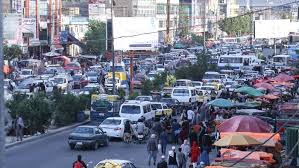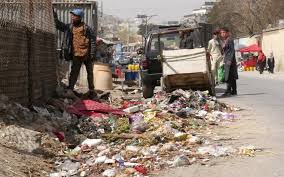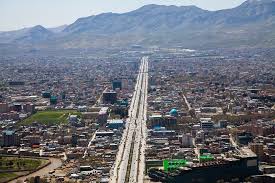Citizens complain about the lack of urban culture in most provinces of Afghanistan

The lack of urban culture in many provinces of Afghanistan is one of the important issues that citizens always complain about. This problem has negatively affected the quality of life, public safety, and urban development in different regions of the country. In the following, we will examine some of the key factors that lead to the lack of urban culture in Afghanistan and have intensified citizens’ complaints about this situation:
-
Disobeying traffic rules
One of the most important problems of citizens in Afghan cities is non-observance of traffic laws. Many drivers ignore traffic laws, including speeding, running red lights, and improper lane usage. This situation causes frequent accidents, heavy traffic and road insecurity. Citizens are dissatisfied with the lack of traffic education and the lack of sufficient monitoring of compliance with the rules. -
Environmental problems
The lack of urban culture has led to serious environmental problems. Citizens complain about the non-observance of public health and the dumping of garbage in the streets, streams and public roads. In many cities of Afghanistan, littering and irresponsible dumping of waste without regard to health and environmental issues has led to widespread pollution. These problems have not only made the appearance of the cities ugly, but also caused various diseases. -
Failure to protect public property
In many urban areas, public property such as parks, statues, roads, and other urban facilities are not properly maintained. Citizens complain about the destruction of public property and misuse of these resources. Some people destroy urban infrastructure by vandalizing or misusing these properties. -
Irregularity in constructions
One of the main complaints of citizens is related to irregularity and non-compliance of standards in constructions. Many buildings are built without permission or in violation of city rules, which causes problems such as blocking of roads, narrow roads and lack of adequate space for pedestrians and vehicles. The lack of regular planning for urban development, especially in big cities like Kabul, Herat and Mazar-i-Sharif, is one of the main reasons for these problems.

-
Lack of public and cultural spaces
The lack of public facilities and suitable cultural spaces is another factor that has affected the urban culture in Afghanistan. Citizens complain about the lack of parks, libraries, recreational and cultural centers to spend their free time. These deficiencies have caused many people, especially young people, to turn to unhealthy activities or social anomalies. -
Not paying attention to the rights of citizens
In many areas, citizen rights such as the right to access public services and urban facilities are not respected properly. Citizens complain about the lack of basic infrastructure such as drinking water, electricity, health and public education. This situation shows the lack of attention of the government and local institutions to the rights and basic needs of the people. -
Lack of training and awareness
One of the main reasons for the lack of urban culture is the lack of education and general awareness among the people. Many citizens do not have enough knowledge of the issues related to living in the urban environment due to the lack of educational programs in the field of urban life and compliance with urban rights and responsibilities. Public education and promotion of urbanization culture through media, schools and social institutions can help to improve this situation. -
Crowding and population density
The increase in population in the big cities of Afghanistan, especially Kabul, has caused many problems in the field of urbanization. Overcrowding without proper urban infrastructure has increased traffic, pollution, and lack of urban resources. Population density without proper urban planning has increased citizens’ dissatisfaction with the living conditions in cities. -
Lack of efficient urban management
Citizens complain about the lack of proper urban management and corruption in government institutions. Many urban development projects are stopped or not implemented properly due to lack of supervision, financial corruption or ineffectiveness of the responsible institutions. This managerial weakness has caused the problems of urbanization to intensify continuously and cities cannot grow and develop effectively. -
traffic and lack of public transportation
Another main complaint of citizens is related to the bad state of public transportation and heavy traffic in big cities. The lack of efficient and sufficient public transportation means that people are forced to use private vehicles, which increases traffic congestion and air pollution.
Conclusion:
Citizens’ complaints about the lack of urban culture in Afghanistan are the result of a combination of economic, social and managerial factors. In order to improve the urbanization situation in Afghanistan, there is a need for detailed urban planning, increasing public awareness, developing transportation infrastructure, and improving monitoring of compliance with urban laws. Paying attention to the basic needs of citizens and providing public facilities can help create a healthy and sustainable urban culture.
